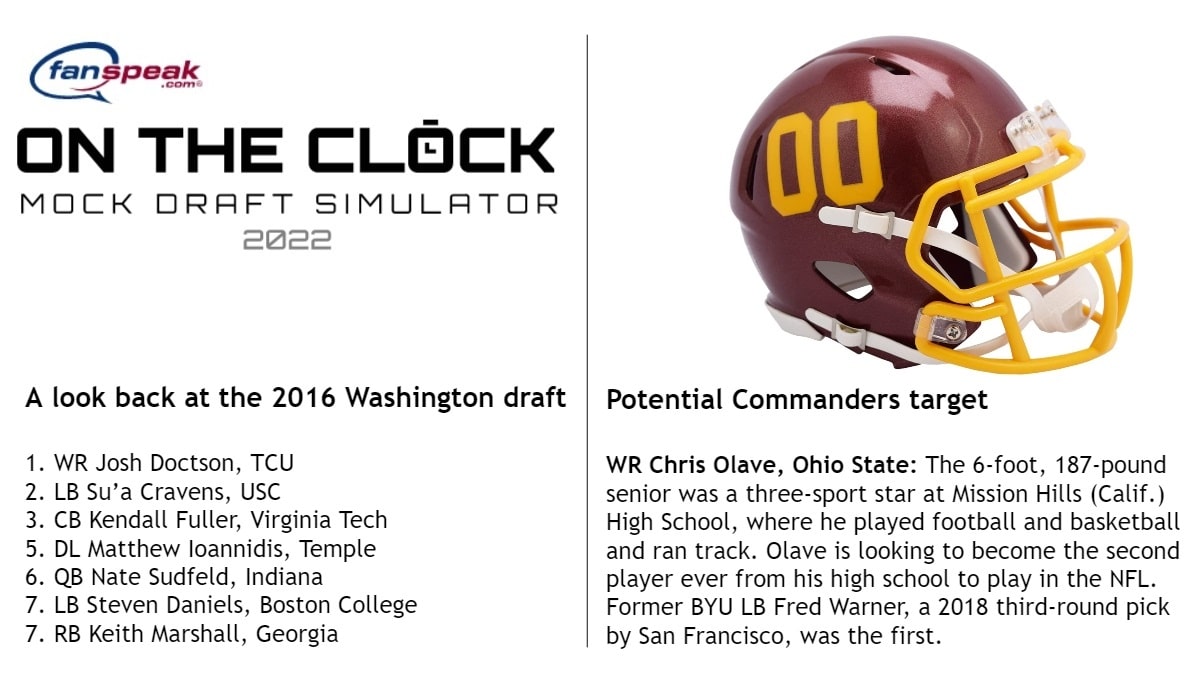Why the Redskins should trade Kirk Cousins after this season:

Part 1 | Part 2
In the coming weeks the Redskins will have to make a number of key decisions for the future of this franchise. From deciding who will be the head coach next year, do they reorganize their front office, to what players the team will look to re-sign. One decision though should already be made regardless of who is in charge in D.C. That decision is to trade back-up quarterback Kirk Cousins to the highest bidder this offseason.
Now some will point to Robert Griffin III‘s struggles this season as a reason to not trade Cousins after this season as they could keep Cousins as a back-up for one more season before trying to trade him before his final year under team control. The problem is you don’t know what the market will be in a year, both from a supply and demand side. If it is a depressed market and Cousins only has one more year of team control left, the Redskins might not get much in return. It’s not worth sacrificing potential value to this team, in the off chance that Cousins could be needed to play some for the Redskins. Despite RGIII’s struggles this season, the Redskins are married to him for better or worse and they need to go through these growing pains and hopefully take steps to minimize them (i.e. not throwing the ball 40 times a game). Griffin has incredible talent and potential, and though it could take some time before they are fully realized the Redskins simply aren’t going to get rid of Griffin for Cousins in the next two years.
Now some may say that the Redskins should keep Cousins for his entire contract to ensure the Redskins have a capable back-up to Griffin who carries a higher injury risk than other quarterbacks. The problem with that is that while it’s nice to have a good back-up, the Redskins need to worry more about filling out the rest of their roster than having the top back-up QB in the league. Cousins represents the Redskins best trade chip and to not use him is a waste. If the Redskins let him hit free agency he’ll be gone without any compensation. Yes there is a chance that the Redskins would get a compensatory pick for him, but it could be no higher than a pick at the end of the 3rd round and would only occur if the Redskins didn’t sign any free agents of similar quality to cancel him out (and they would also have to sign fewer free agents than they lost). So chances are the Redskins would lose him for nothing, and on top of that he could end up heading to one of the Redskins biggest rivals.
Cousins is scheduled to hit free agency after the 2015 season. At that time two of our division rivals the New York Giants and the Dallas Cowboys could be looking to replace their quarterbacks. Eli Manning will be 35 years old in 2016, and his mega contract will have just expired the previous season. Now perhaps between now and then the Giants and Manning extend the deal, but with the way he’s played this season that doesn’t seem so likely. New York will have plenty of money to spend that year, especially on a quarterback that wouldn’t cost the Giants a draft pick. Tony Romo will still be under contract, but he’ll be 36 that spring and the Cowboys could look to dump over $60 million in future contract savings (and that is after the dead money they’d owe him) by either cutting or trading him. While there are obviously other teams who could be looking to replace their older quarterbacks or teams just looking for a quality QB, there is a strong case to be made that Cousins could end up being on a division rival for the next 10 years. If the Redskins trade him before hand they are basically ensuring that he’s not on a division rival.
Why is it time to trade Cousins you might ask? Well it simply comes down to supply, demand and Redskins needs:
Supply:
While it is unknown just how strong this draft class appears to be depending on what underclassmen actually declare, it should be a fairly strong quarterback class overall. That would seem to hurt the Redskins case for trading Cousins this year. While it is a strong and deep quarterback class, there are probably only a few guys who are real elite caliber quarterbacks. And many of those guys have some questions about how quickly they can adapt to the NFL game. Many teams/coaches in need of quarterbacks, can’t afford to spend a high first round pick and wait 2-3 years for the quarterback to produce at a high level. Those coaches and G.M.’s will be out of jobs by the time the quarterback realizes his potential, so an NFL ready quarterback could be far more preferable, especially since it won’t cost them a first round pick.
As for veteran options there could be a few names out there like Michael Vick and Matt Schaub, but both come with their own risks and will cost a team a lot more against the salary cap making them less desirable in many situations. Josh Freeman will be a free agent, but after this season he’ll likely need to reestablish himself as a back-up. Jay Cutler is an unrestricted free agent, but I think he is likely to be franchised or extended by the Bears.
There could be a trade market for some young quarterbacks like Ryan Mallett, Mike Glennon, Jake Locker, Christian Ponder, Blaine Gabbert, and Brandon Weeden. Mallett and Glennon could possibly be viewed similarly to Cousins as a young upside starting option, but they are probably the two least likely to be dealt. The rest are failed first round picks and probably won’t be really considered starters unless some team is desperate. Of the potential quarterbacks to be traded Cousins probably is at the top of the list (barring something crazy like Ben Roethlisberger being dealt).
Continue on to Part Two


